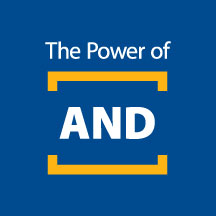Our Blog
Mindfulness, Motivational Interviewing & The Now
In the last few years, a great deal of research and media attention is being given to the concept/practice/idea of mindfulness. While it might seem like the flavour-of-the-moment buzz-word, to us it might also be perceived as an encapsulation or distillation of the spirit, processes, and core skills of Motivational Interviewing (MI). Most definitions of mindfulness are some derivation of this one: “paying attention in a particular way; on purpose, in the present moment, and non judgmentally.” It is a way of framing the capacity of an individual to be present and attentive to what occurs within and around us, moment to moment. We would suggest that for most of us, being present, attentive, and in the moment is no small task because it’s not something you do; instead it’s a way to be, intentionally. Consider this video clip as a way to visualize mindfulness…
read more…
Mirror in the New Year
Often, it seems to us, the ultimate goal of being a health professional is the same as that of being a parent; that is, to nurture and care for our patients/children so well that we become more or less redundant. On New Year’s Day, 2016, we would underscore the words of Rainer Maria Rilke, “And now we welcome the new year, full of things that have never been.” Working with our patients in behaviour change, motivational interviewing mode is not about solving a problem for/with them; rather, it is really about moving with them to see what aspect/s of their lives might be lived more fully. To paraphrase from the educational organization called The Mankind Project, when your client is looking for that one person who can change their life, that person might best be invited to take a look in the mirror. read more…
yes, and…
One of the most under-appreciated words in the English language is the word ‘and,’ that tiny little con-junction or 3-letter joining word. Coke Zero ran an intriguing ad that is rich and instructive about how to use ‘and’ constructively for effective communication:
The Tipping Point of Change
In his 2000 best seller, The Tipping Point: How Little Things Can Make a Big Difference, Malcolm Gladwell defined the tipping point as, “the moment of critical mass, the threshold, the boiling point.” For the most part, Gladwell was examining sweeping social changes that began as small ideas that spread like viruses. Is there such a tipping point in individual behaviour change? Are there personal thresholds of health behaviour change? What makes them seem insurmountable? What does it take to dare to cross one of those thresholds? What do tipping points look like? Consider this example: read more…
Evoking transformation
To evoke is to summon or elicit or conjure or stimulate or arouse – all of these senses or synonyms of the word evoke reveal what doing Motivational Interviewing (MI) intends. Miller and Rollnick, the founders of Motivational Interviewing, talk about evoking transformation as the heart of MI. By engaging with clients or patients and being in the attitude, spirit, or mode of MI, we try to tease out change talk in clients by working with them to increase their own sense of the importance of a particular behaviour change, their confidence in making that change, and their readiness to move toward that change by taking a particular action and/or by learning more about the significance of that change in their lives. What we face sometimes are the ‘stories’ or labels that clients bring to an MI session or process. Consider the marvellous symbolism of this video clip and the kind of self-transformation that is implied: read more…
Skeletons Dancing, Screens Changing
At this website’s blog postings, we have discussed the importance of perception, perspectives, and really, truly seeing life-situations differently than that to which we are accustomed. We are and we experience what we believe; we shape what we expect; we create from our own, sometimes cherished ‘evidence’ about reality and human behaviour. Sometimes, it takes something poignant to remind us about the exquisiteness of each human being and the grand significance of human relationships. While not specifically about Motivational Interviewing, we felt that the importance of this remarkable video was so profoundly simple and so simply profound that we have included this clip into our regular blog topics: read more…
Not to decide is to decide
One of the definitions or characterizations of Motivational Interviewing (MI) is that it involves arranging conversations so people talk themselves into change based on their own values and interests (Miller and Rollnick, Motivational Interviewing: Helping People Change, 2013, p. 4). ‘Arranging conversations’ seems an apt descriptor of the process involved in taking up the spirit of MI. Like most things we do in life, entering into MI is a deliberate process; it is, in many ways, an attitude or an intentional way of being in a conversation. Clearly, not all conversations are MI-related. In order for a conversation to be MI, either or both of two things need to happen – you work with a client either to deepen her learning and/or to get your client into an action, some behavioural change to which she commits. read more…
It’s Not About the Nail
In many of our blogs we have sought to underscore the importance of listening, really listening to our clients (See our empathy blog, for example). Sometimes, it is just seems so blatantly obvious to us exactly what the issue is with a client and we want so much to offer the oh-so-apparent fix, all, we believe, in service of the client we serve. Consider this humorous yet poignant vignette: read more…
Resilience in MI work
Many health professionals no longer speak or counsel about prevention when it comes to buttressing oneself against disease or unhealthy situations or factors. A flu shot does not prevent getting the flu. In some ways, the idea of ill-health prevention sets us up with false expectation. On a daily basis, we all encounter different risks to our health, such is life. Instead, a more meaningful and realistic concept might be risk management; that is, managing healthy behaviour is likely more about how well we adapt to the stressors in our lives. Resilience is generally considered as positive adaptation following a stressful situation. All of the literature on psychological resilience points to the importance of realizing that resilience is a dynamic process. There might be trait resilience – one individual might have a greater capacity for ‘bouncing back’ following a stressful event. read more…
NO to KNOW
“There is nothing which we receive with so much reluctance as advice,” British essayist Joseph Addison, early 18th Century.
Client resistance is such a big concept and can seem an insurmountable barrier in Motivational Interviewing. We know that recognizing and rolling with resistance is a key variable in effective MI work with our clients. Resistance behaviours include things like blaming others, making excuses, ignoring clues or signs, minimizing importance or significance, and challenging any suggestions for change. In short, clients find ways to say, and often have lived in the place of NO, – as in they can’t or are not ready to change. Rolling with resistance is not easy, in fact, it might be the most difficult and seeminlgy time-consuming process to learn in using MI. Miller and Rollnick (in Motivational Interviewing: Helping People Change, 3rd edition, 2012), emphasize the mindful work that goes into MI practice in their concept of shifting status talk – the way it is – to change talk – the way it might be if the client were ready to change. Another way to frame the process is to think of the KNOW sandwich. read more…

